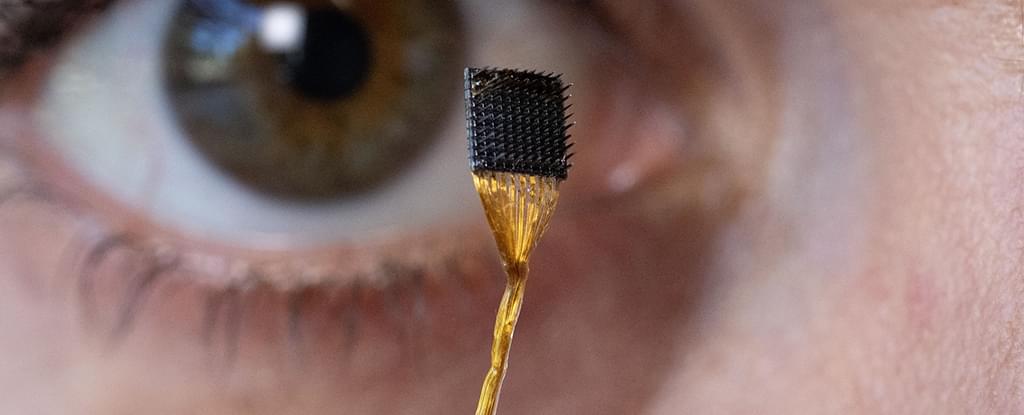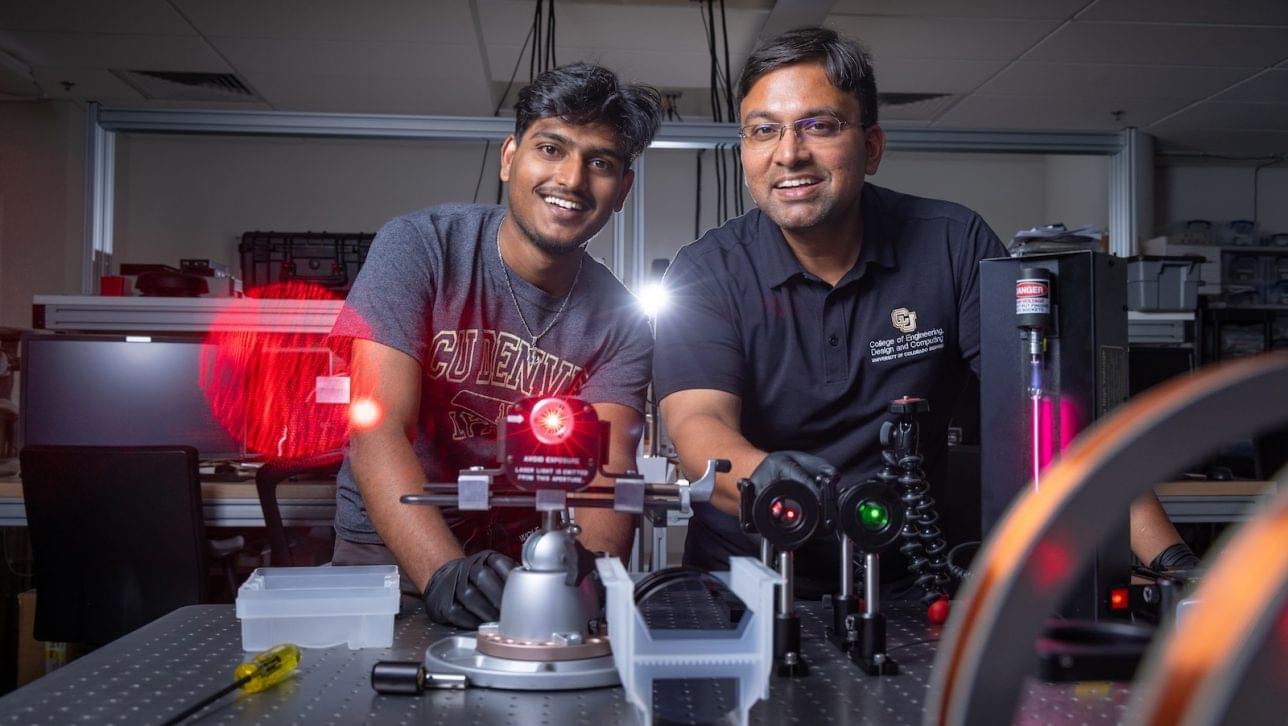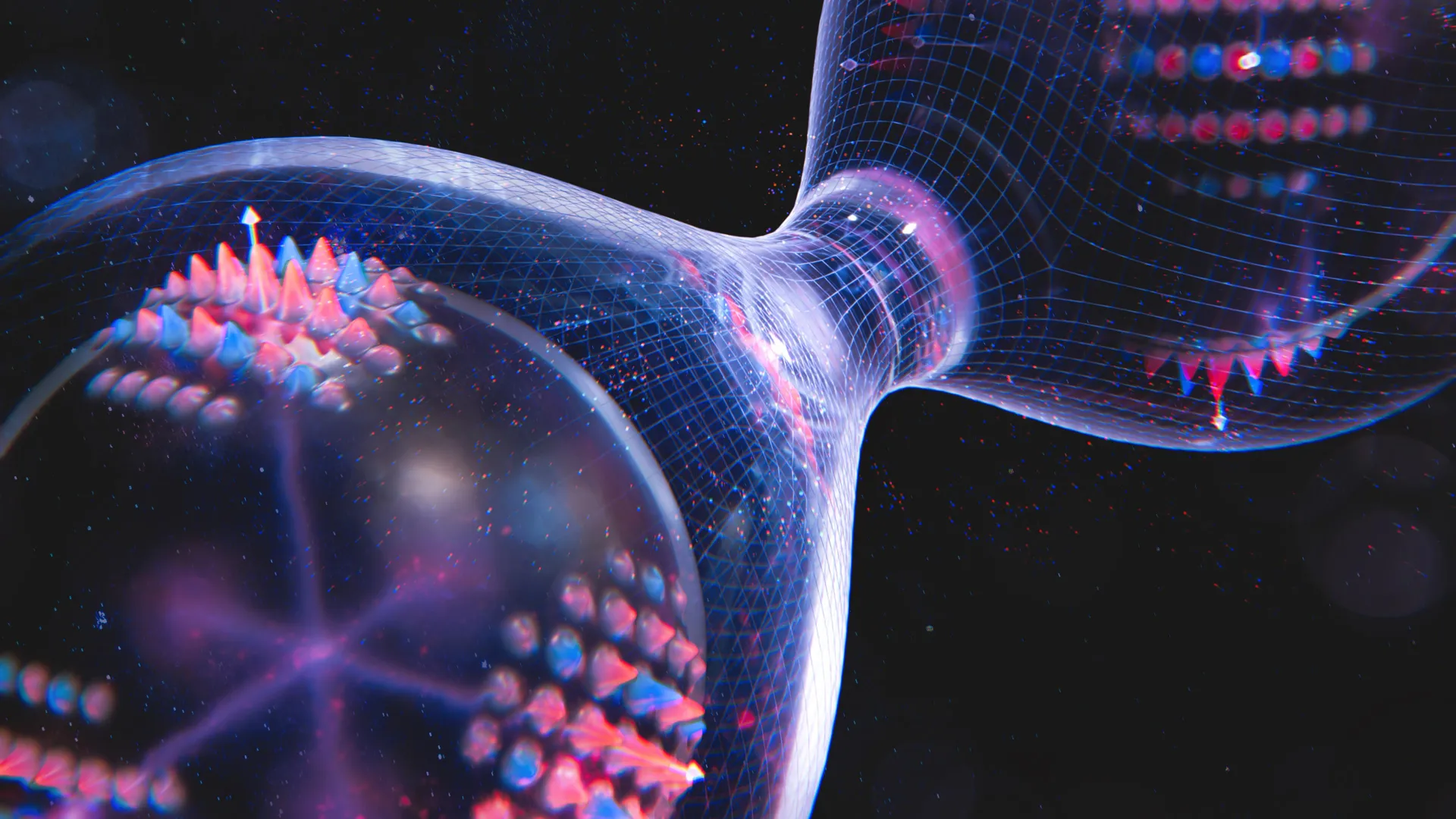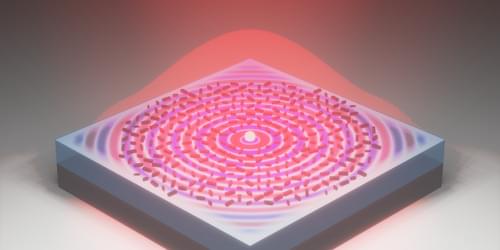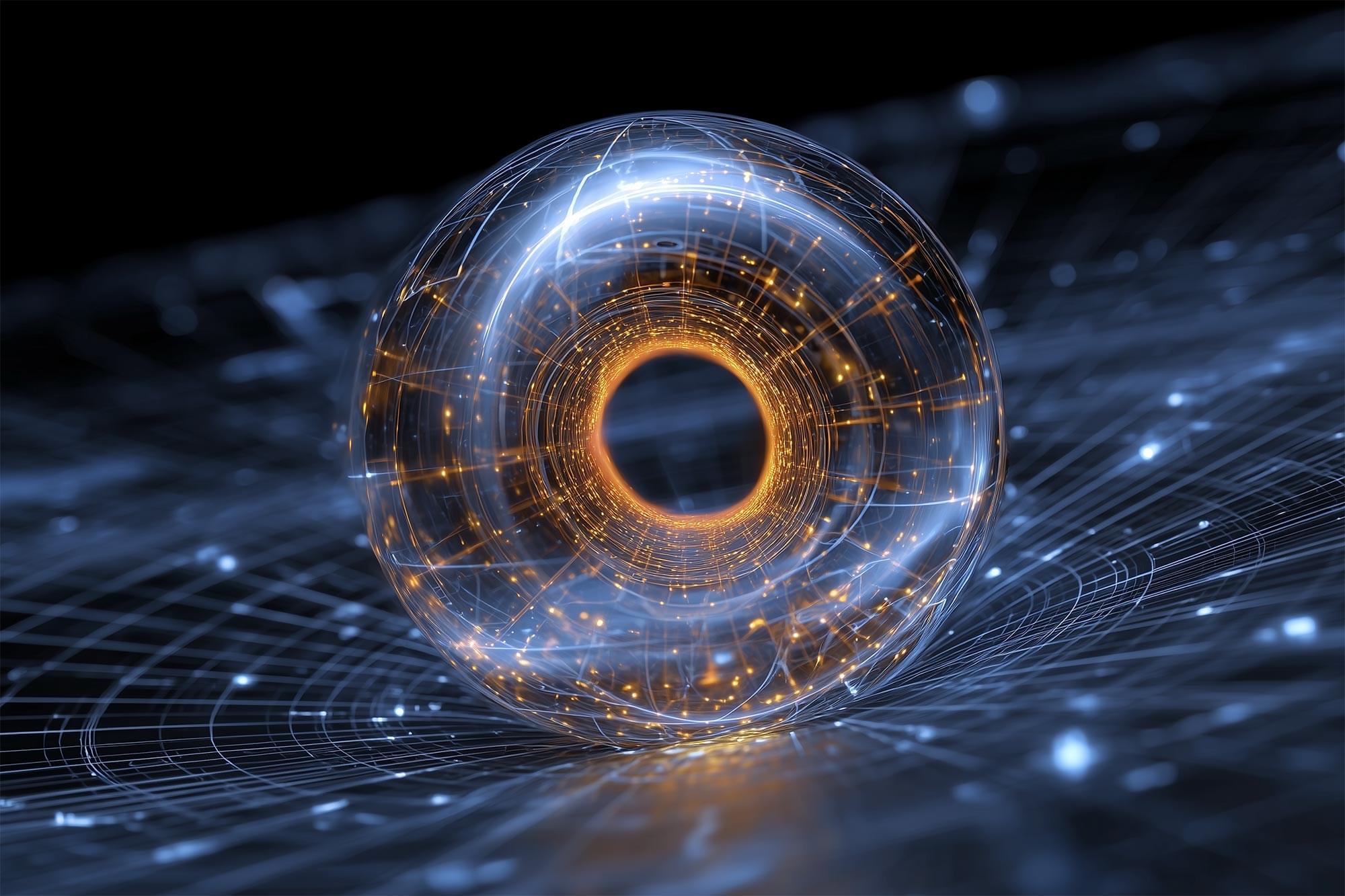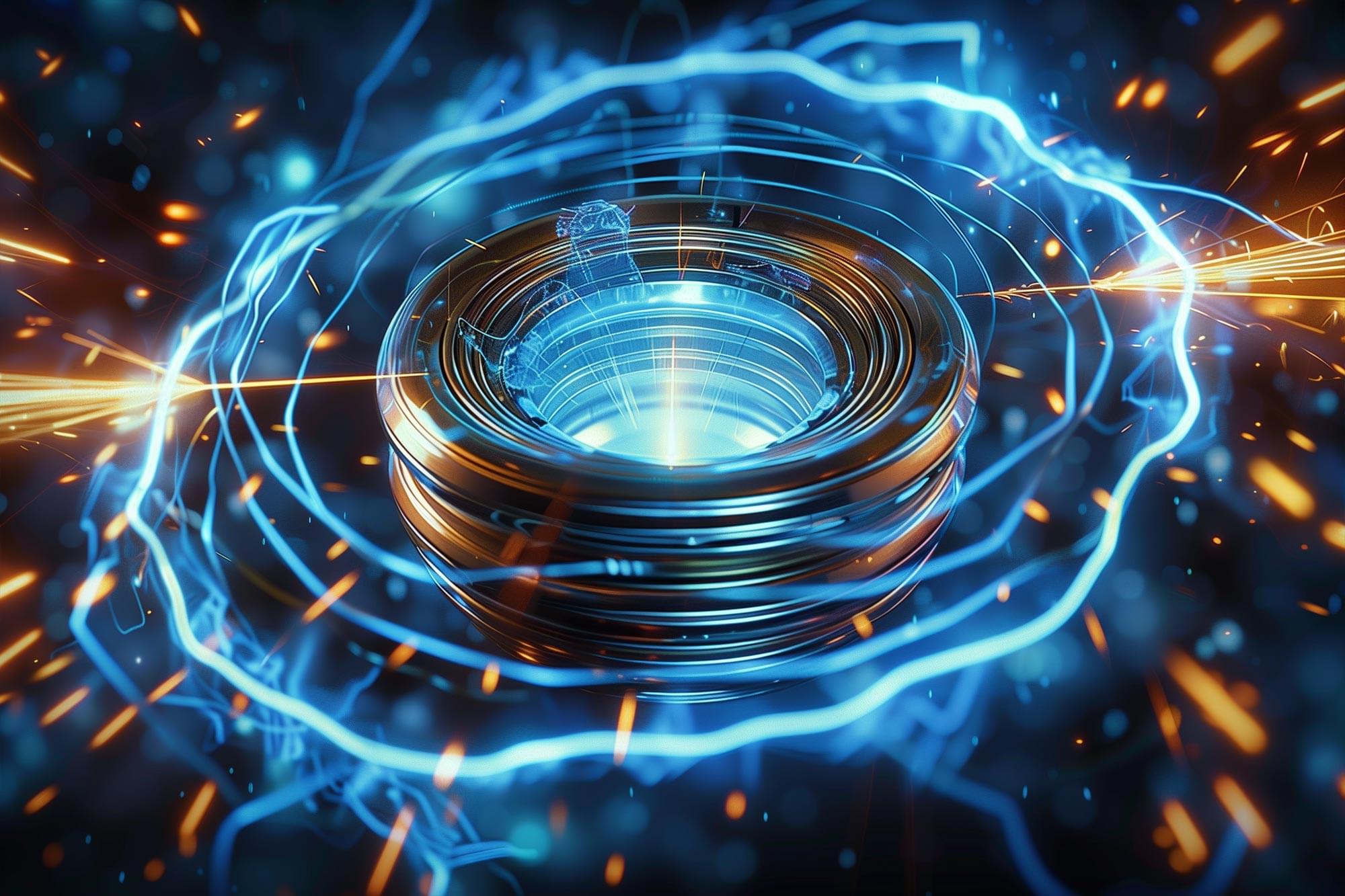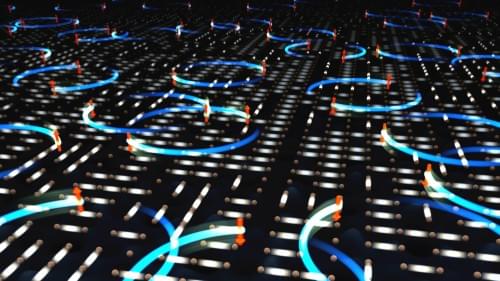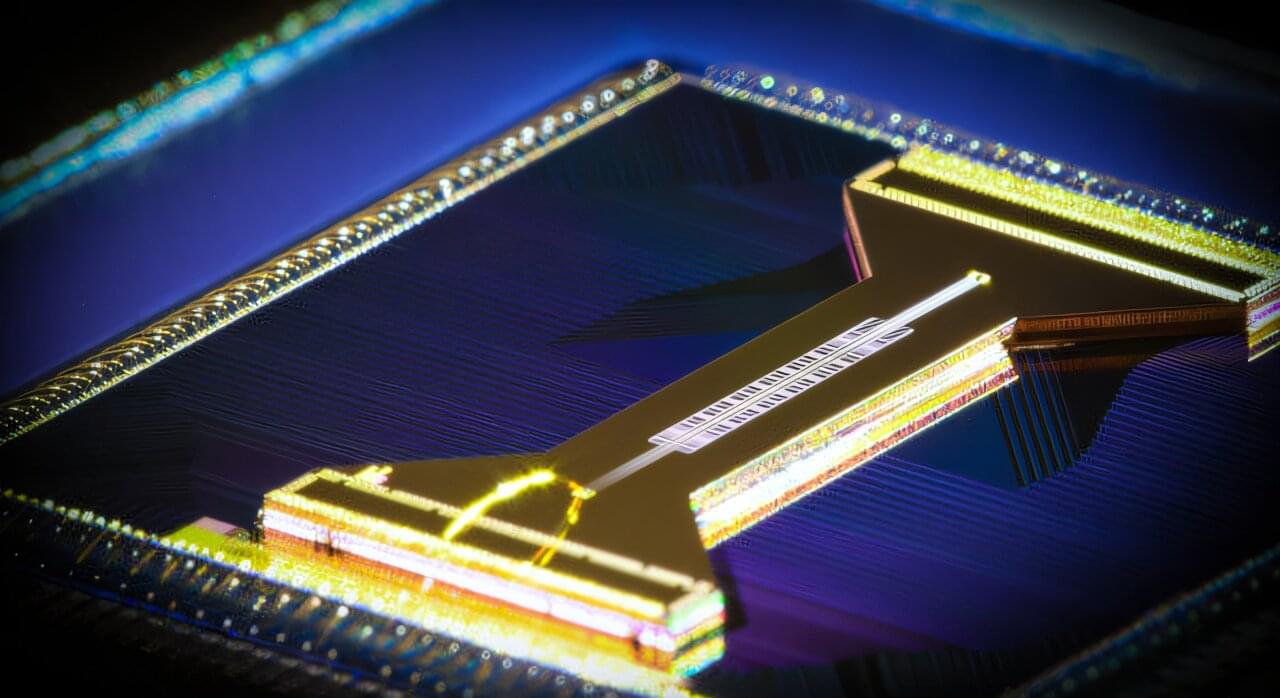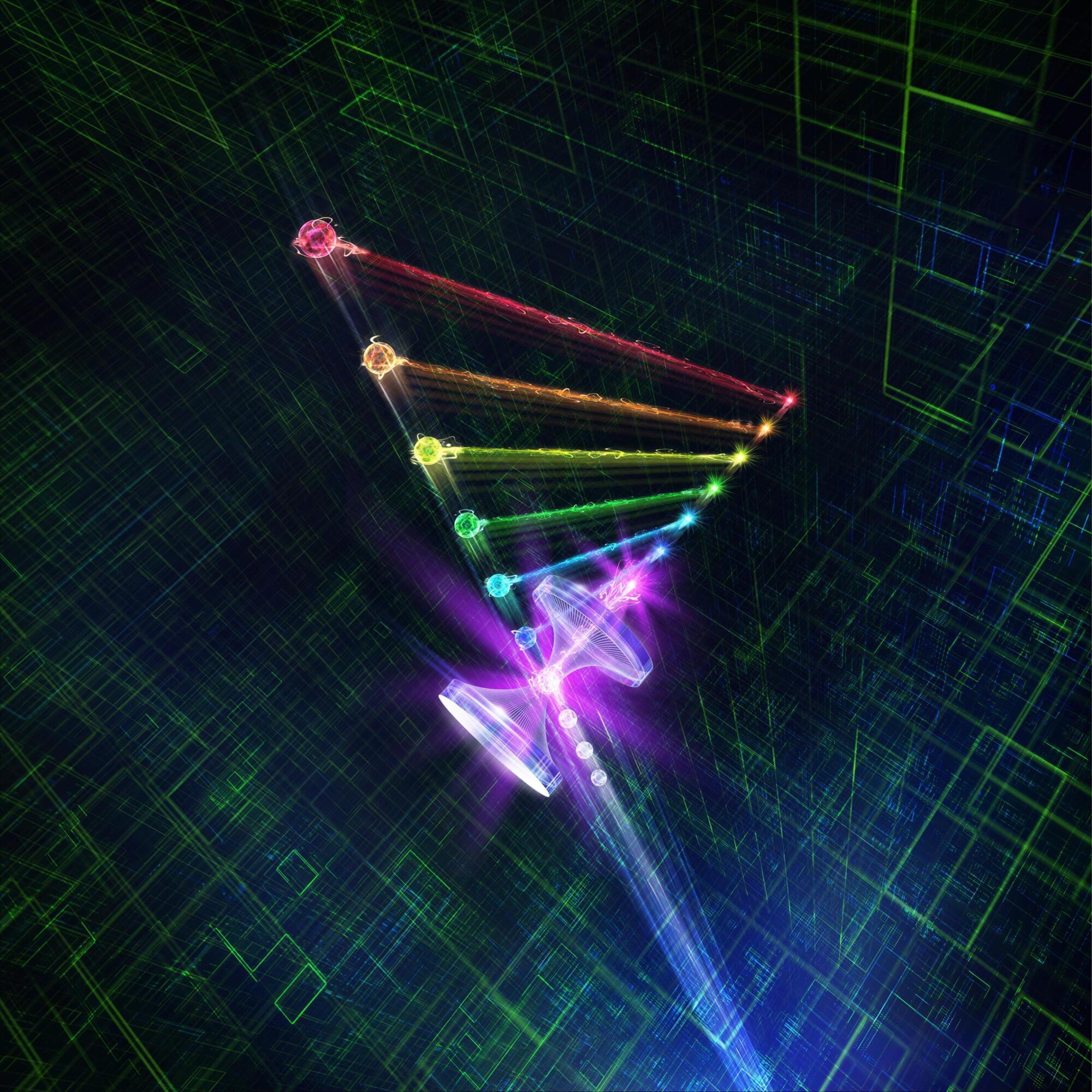A 10-µm-wide microchip can generate light with any desired direction, polarization, and intensity, which will be handy for future quantum technologies.
Emerging technologies for quantum computing and cryptography require small components capable of emitting photons whose properties are precisely controlled. Researchers have been developing such components, and now a team has demonstrated a technique that provides control of direction, polarization, and intensity simultaneously [1]. Like previous experiments, the technique uses microscopic structures on a semiconductor surface to convert wave-like surface excitations to light waves. But the new demonstration uses shapes for these structures that allow more precise control over the outgoing light. The team expects the new technique to find wide use in efforts to build quantum technologies in miniature solid-state devices.
Solid-state miniaturization is one of the few realistic routes toward making quantum technologies practical, scalable, and easily manufacturable, says Fei Ding of the University of Southern Denmark. But there are not many good compact photon sources. “The technology really requires a compact and flexible solid-state photon source that gives us full control over how light is emitted—its direction, polarization, and spatial profile,” Ding says. “This is crucial for building scalable quantum and nanophotonic technologies, where single photons are used as the fundamental carriers of information.”
